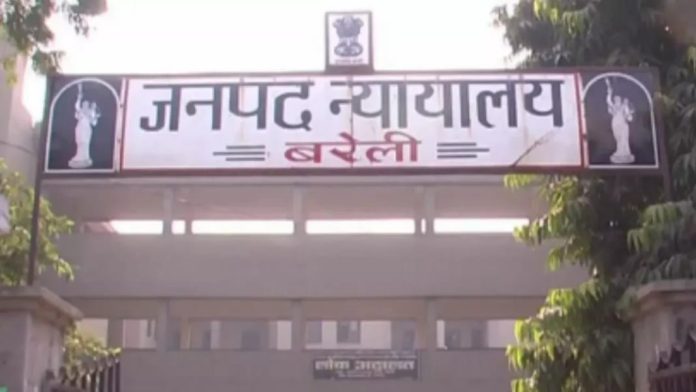Bareilly: A court in Uttar Pradesh has sentenced Mohammad Aalim, a Muslim man, to life imprisonment in a controversial ‘Love Jihad’ case, despite the victim later changing her testimony. The case, presided over by Judge Ravi Kumar Diwakar, has sparked widespread debate due to its reliance on the controversial term “love jihad,” which refers to the unfounded claim that Muslim men lure Hindu women into relationships to convert them to Islam, reported The Hindustan Times.
In his 42-page judgment, Judge Diwakar upheld Aalim’s life sentence even though the woman involved retracted her initial accusations during the trial. She testified that individuals from Hindu organizations had pressured her parents, stating, “This is a Muslim boy, and your daughter cannot go to his house.” Despite this retraction, the judge suggested that Aalim had manipulated her into withdrawing her claims.
Initially, the woman had accused Aalim of taking explicit photographs and videos without her consent and threatening to release them if she reported the abuse. The court placed significant emphasis on these initial allegations. Judge Diwakar expressed skepticism about the victim’s testimony change and raised concerns about how she was financially supporting herself, insinuating that Aalim was responsible for her livelihood.
The judge also expanded on broader allegations regarding “love jihad,” claiming that vulnerable women from non-Muslim communities, like the victim, who belonged to the Other Backward Classes (OBC), were being targeted for illegal conversions. He further suggested that the alleged pattern of “love jihad” was part of a larger effort to achieve demographic dominance in India and raised suspicions of foreign funding.
Though Aalim was not charged under Uttar Pradesh’s specific laws regarding unlawful religious conversion, the case has reignited discussions about the treatment of interfaith relationships in the state and the use of the ‘love jihad’ narrative in legal contexts.
This case continues to raise significant questions about judicial interpretations, societal pressure, and the treatment of religious minorities in India.




